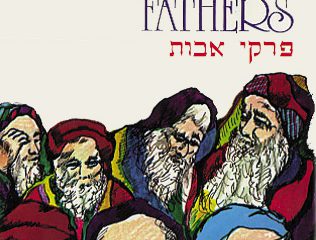Speedily in our days

By Rabbi Levi Simon, Chabad of Greater Dayton
The Midrash tells: On the day that the Holy Temple was destroyed, a Jew was plowing his field when his cow suddenly cried very agonizingly. An Arab was passing by and heard the call of the cow. Said the Arab to the Jew: “Son of Judah! Unyoke your cow, free the stake of your plow, for your Holy Temple has now been destroyed.” The cow then cried a second time. Said the Arab to the Jew: “Son of Judah! Yoke your cow, reset the stake of your plow, for the Messiah — Moshiach — has now been born.”
We are approaching the saddest period of the Jewish year. The three weeks between the 17th of Tammuz and 9th of Av (corresponding this year to June 27 through July 18) are a time of mourning for the destruction of the Holy Temple(s) and for the resulting exile of the Jewish people.
We mourn not only for the physical exile from our Holy Land, but also for the spiritual displacement — from which we still suffer.
During these three weeks, in addition to the destruction of both the first and second Temples in Jerusalem, many calamities befell the Jewish people throughout history.
We commemorate these events by fasting on the 17th of Tammuz and on the 9th of Av. During the intervening days, no weddings are held, we do not take haircuts, purchase new clothes, or listen to music.
However, there is more to the Three Weeks than fasting and mourning over the destruction and exile.
During this time, we try to remedy the spiritual causes of the exile, galut in Hebrew. We try to address the misdeeds that resulted in the galut.
Our sages tell us that the destruction of the second Holy Temple was caused by a lack of true love and consideration of one Jew for another.
Therefore, we take the opportunity during these weeks to awaken our hearts, to return to our better nature, individually and as a community, to strengthen our connection to God and our fellow man.
The prophet Isaiah describes the fasts as “days of goodwill before God.” Why goodwill? Because they are days of opportunity. We can use our regret over past failings as the impetus for forging a renewed and even deeper bond with God and His people.
The Lubavitcher Rebbe teaches that there is a deeper dimension to all of the above. That is, to recognize that the exile itself is a necessary phase of redemption.
The word in Hebrew for the ultimate redemption, geulah, is comprised of the entire Hebrew word for exile, golah, with the addition of the letter alef.
This indicates that the state of redemption includes within it everything positive of our present life, plus everything, with the addition of the element of alef. The alef refers to the Alef, the Master of the World, God.
The perfect world of Moshiach, of Messiah, that we pray for daily is not a negation of who and what we are now. Rather, it is the perfection and enhancement of the very same elements which make up our lives today.
While the world we live in doesn’t seem to be conducive to godliness; in actuality, every positive deed, word, and thought — each mitzvah (commandment), minute of Torah study, and act of kindness — contributes towards a world which expresses the perfect goodness inherent in all that God created.
In the era of Moshiach, the inner good of our present-day lives will come to light and shine.
The Talmud relates: Rabbi Yehoshua ben Levi asked Moshiach: “When are you coming?”
Replied Moshiach, “Today.” Later, Rabbi Yehoshua met Elijah the Prophet and complained: “He told me that he is coming today, yet he didn’t come.” Answered Elijah, “This is what he meant:
‘Today, if you will listen to His voice.’”
May that day come soon, and then all the mournful dates on the Jewish calendar will be transformed into days of tremendous joy and happiness, speedily in our days, Amen.
To read the complete July 2021 Dayton Jewish Observer, click here.




